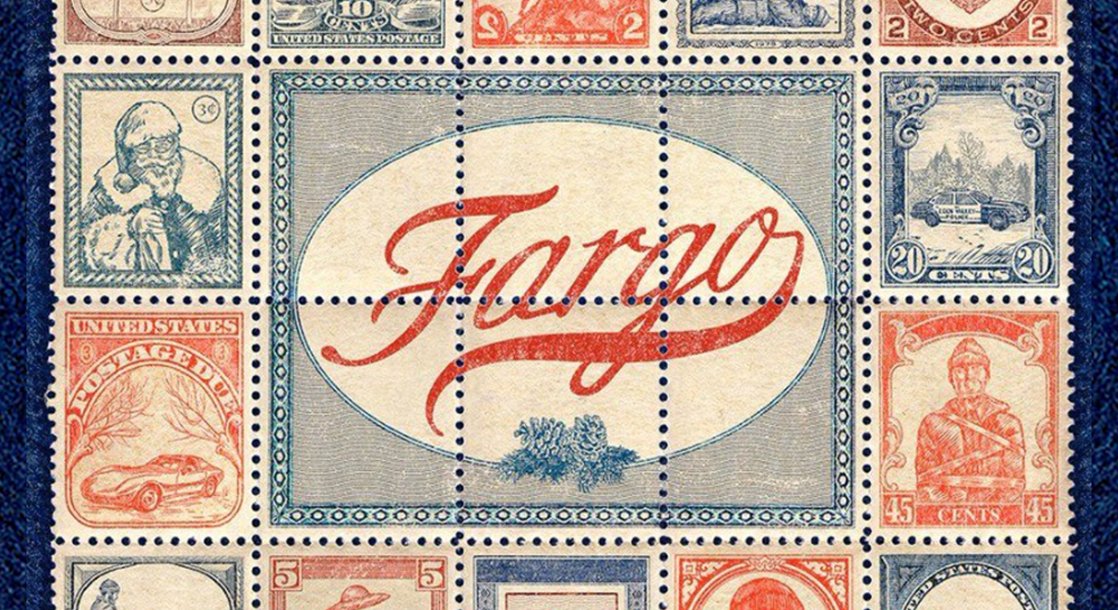With its Marvel super hero pedigree and the built-in benefit of being a new series, Legion enjoyed critical adoration and pop culture saturation throughout its first season. Though Legion is a very good show, and proved itself to be another fine addition to the FX repertoire, Fargo is the best thing Noah Hawley (the mastermind behind both) has brought to television.
Hawley has favored themes of loneliness, the difficulty of human relationships, and man’s inhumanity to his peers all fit perfectly into the harsh, vast midwestern landscape of Fargo. Legion explores the same themes, but uses David Haller’s (played by Dan Stevens) mind as its canvas. It is difficult to keep dramatic action externalized when everything is happening inside a character’s mind, and, as a result, the story unfolds in fits and starts. While the plotting of Legion results in brilliant, artistically-fulfilling highs, there are also confusing, muddled lows.
Legion sets a high degree of difficulty for itself, and sometimes fails to clear the bar. By contrast, Fargo’s excellence seems limitless, with possibilities as vast and open as the great American plains. Even though both shows are brilliant, and will likely remain some of the best on TV until Hawley walks away from them, Fargo is the more fulfilling of the two. With season three premiering April 19 on FX, here's a look at why Hawley has two winners on his hands, but only one classic.
Making Action Active
Clearly influenced in equal measure by Sigmund Freud and David Lynch, Legion uses the inner world of the mind as its landscape. The major conflict of the series is between David and the evil spirit (Aubrey Plaza) that has taken up lifelong residence inside his mind. The way this conflict plays out is often brilliant. Jemaine Clement’s turn as a beatnik swinger trapped in an icy prison who traverses the astral plain in an old-fashioned scuba diving suit is the kind of stroke of genius that is rare in any artform. Illustrating certain mental states with a room filled with globes or two people shoved into a phone booth can be as resonant as any scene set in the real world. Like his model David Lynch, when Hawley’s exploration of the subconscious touches on something universal, the show reaches great heights. But also like Lynch, when Hawley’s dreamscape isn’t so universal, the viewer sometimes gets lost. At its best, Legion feels like Mulholland Drive and Blue Velvet, but sometimes it feels like you’re watching a plodding, super hero-infused version of Lost Highway or Inland Empire.
The incredible challenge Hawley set for himself seems further complicated by network notes. Whether its Marvel or FX (Legion is adapted from an X-Men comic series), it is clear that the powers that be didn’t totally trust Hawley, despite his track record of success. The show, in balance, feels like it is about 20 percent exposition. Sometimes, this exposition feels necessary and is handled with graceful artistry. In the penultimate episode, there is a scene whose entire cast is limited to two versions of David and a chalkboard, and it stands out among the best moments in the series. More often than not, though, there are scenes where the characters dump exposition on us by the pound without moving the story forward. There are at least a half-dozen scenes between David and Syd (Rachel Keller) sitting on a dock overlooking a pond, repeating the details of the dream world we’ve just seen. After fifth or sixth billing, the characterization drops off, serving as little more than exposition chess pieces. You leave the season knowing little more about Ptonomy (Jeremie Harris) and Kerry (Amber Midthunder) than their powers and their preferred fashion choices.
By contrast, Fargo never doubles back on itself and never pauses to explain: each season drives forward with exuberant, hilarious energy. Season two’s saga of the Gerhart crime family is so rich with story that details of the events bleed into the mythology surrounding season one. Even after ten incredibly full episodes, you still feel that you could have spent even more time with the unfulfilled dreams of Peggy (Kirsten Dunst), the mercenary evil of Mike Milligan (Bokeem Woodbine), or the seething rage inside of Hanzee (Zahn McClarnon). Hanzee’s story even seems meaty enough for its own spinoff, though McClarnon’s role is billed roughly fifteenth if you go by pure screentime. Whenever we meet a character in Fargo — even a lonely old general store proprietor in a fishing town who is only with us for a scene or two — we get new stories. Sometimes they’re folktales, sometimes they’re business pitches, and sometimes they’re monologues about the realities of the universe. In Legion, we spend eight hours exploring the crevasses and canals of David’s mind. In Fargo, we slowly stitch together a story of America that spans from Chicago to Las Vegas, from Dallas to Minnesota.
Symbols Large and Small
Legion is specific and Fargo is universal, at least as universal as America’s borders. David Haller’s obsession with a children’s book, his lingering guilt over a particular fight with his girlfriend (who looks oddly like his sister, who looks oddly like his mother; like we said, Freud is an influence), and his memories of a dog that never existed may resonate with someone else who has the same psychological hang-ups, repressed desires, and lingering dreams as our protagonist. Fargo, with its topography filled with used car dealerships, dive bars, greedy bankers, and no-questions-asked gun shops, feels as American as apple pie. The symbols of Legion are brilliant because they are so specific. The symbols of Fargo are brilliant because they are universal.
It makes sense that Noah Hawley is a novelist in his spare time, because his shows may best be described in literary terms. With Fargo, Hawley is trying to write a great American novel for television. Sure, it’s parceled out into stand-alone anthologized seasons, but those seasons come together to tell the story of America from a particular perspective. Legion is attempting something like a trippy bildungsroman: our hero may be a fully-formed adult, but it isn’t a mistake that we constantly rewind to his childhood as though we were watching a home movie stuck on infinite repeat.
Legion is the story of one man’s mind and the truths that may or may not be contained within it. Fargo is a story about this country, told through the illuminated neon signs of motels, written on foreclosure signs in front of family farms, and packed inside the barrel of yet another desperate man’s gun. Fargo doesn’t have to spend its time making sure that you “get it.” At the end of the day, telling a story is the only real job a TV show must complete, and few programs have told as engaging and inimitable a story as Fargo. Winter hats off to Noah Hawley — season three of the instant-classic premieres April 19 on FX.











